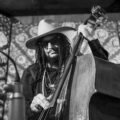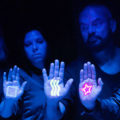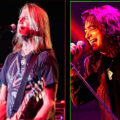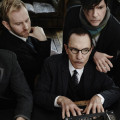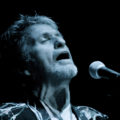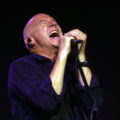“Everybody Have Fun Tonight”: Wang Chung to get Des Plaines Theatre “Abducted By The 80’s”
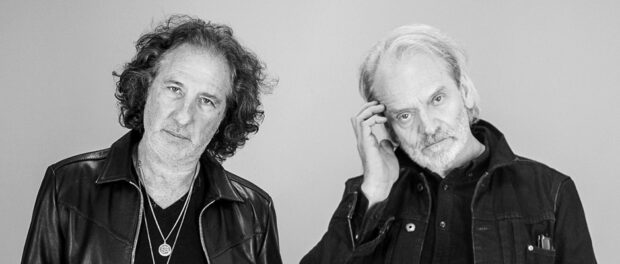 Photo provided by Chipster PR
Photo provided by Chipster PR
When MTV was the centerpiece of pop culture, Wang Chung went on a winning streak with the delightfully different but impossible to ignore likes of “Dance Hall Days,” “Hypnotize Me,” “To Live And Die In L.A.,” “Let’s Go!” and of course, “Everybody Had Fun Tonight.”
Not only will the Des Plaines Theatre get to hear them all on Friday, June 7, but also sets from fellow pop/rock peers Men Without Hats (“The Safety Dance”), The Motels (“Only The Lonely”) and Naked Eyes (“Always Something There To Remind Me”) when it gets completely “Abducted By The 80’s.”
Front man/guitarist Jack Hues checked in with Chicago Concert Reviews to explain the outing’s origins, preview the forthcoming “Clear Light Dark Matter Greatest Hits” collection, reflect on the 40th anniversary of “Points On A Curve,” recall touring alongside The Cars and Tina Turner, plus what it was like working alongside legendary Genesis keyboardist Tony Banks in their side band Strictly Inc. prior to reuniting with bassist Nick Feldman for another round of Wang Chung.
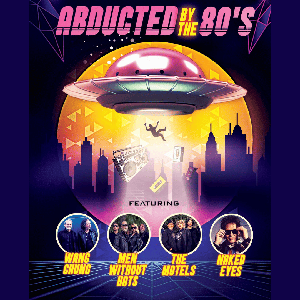 How did the idea to start the “Abducted By The 80’s” Tour come about?
How did the idea to start the “Abducted By The 80’s” Tour come about?
Jack Hues: I guess we’ve been doing some ‘80s kind of tours in the past and we felt that we could sort of focus things a little better if we had more control over the tour ourselves. “Abducted By The 80’s” is the name of a song that we had on an album called “Tazer Up!,” which we released in 2012. [We thought] “that would be quite a cool overall name for everything” and we spoke to some friends of ours. Obviously, over the years we’ve toured with various bands. The Motels, Naked Eyes and Men Without Hats are people we get on well with and admire. We just spoke to them and they were up for doing it. The next step is the business really and people seem to be keen on trying to sell tickets to that show.
What does getting “Abducted By The ‘80s” mean to you?
Hues: (Laughs) Um, I guess when I look at the fans who come to see it, they definitely look like they were “Abducted By The 80’s,” not that they’re stuck in the past exactly, but they love it, if you know what I mean. Not everybody, but a lot of them come dressed the part. They’re sort of like sports fans in a way. If you’re really into a particular team, you know a lot about it. You know the personalities. Eighties fans are singular. They’re very committed and very dedicated to it. The music was essentially very positive and I think people love that and miss that in a lot of modern music as well, so “Abducted By The 80’s” is really just having a strong affection for it and identifying with the ‘80s.
What do you have planned for the Arcada Theatre, not only from your portion of the night, but the others on the bill?
Hues: The idea is just having four bands means that we get longer set times. Some of the shows we do, we play a maximum of four songs, so that’s like the hits and sometimes we play “To Live And Die In L.A.,” whereas with this, I think we’re doing a 30 or 40 minute set. It means a little more variety and a little more deep catalogue, so I think people will be gratified.
One of the things I find when people come and see Wang Chung is that they know the songs, but they don’t necessarily relate all the songs to the one band (laughs). You have fans of “Everybody Have Fun Tonight,” but they didn’t realize we did “To Live And Die In L.A.” and vice versa. “To Live And Die In L.A.” [listeners] are surprised we did “Hypnotize Me,” for instance, from “Innerspace,” so I think the experience of seeing Wang Chung is, a, you see a pretty happening rock band, which is what I think we are these days, and b, you hear a lot of songs you are familiar with, but didn’t realize they were all coming from the same source.
Are there any prior shows around town you specifically remember?
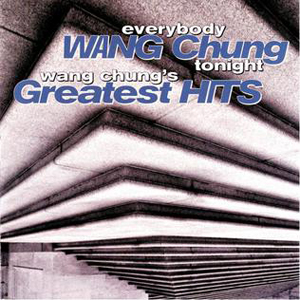 Hues: I remember playing the Arcada Theatre with The Fixx. I think that would’ve been back in 2012 maybe, something like that, and it was a particularly great night. Ron [Onesti], the guy who runs the theatre, I loved him. He was really into us and we even did a little interview before we played the set cause he was so fascinated by the way we talked (laughs), the accents I guess, but also the way we talked about music. That was great and the theatre itself is beautiful, that sort of old 1930s style. It’s very intimate and you feel like you’re in a really amazing space that’s been well traveled by a lot of different artists.
Hues: I remember playing the Arcada Theatre with The Fixx. I think that would’ve been back in 2012 maybe, something like that, and it was a particularly great night. Ron [Onesti], the guy who runs the theatre, I loved him. He was really into us and we even did a little interview before we played the set cause he was so fascinated by the way we talked (laughs), the accents I guess, but also the way we talked about music. That was great and the theatre itself is beautiful, that sort of old 1930s style. It’s very intimate and you feel like you’re in a really amazing space that’s been well traveled by a lot of different artists.
This is all coming in advance of your “Clear Light Dark Matter Greatest Hits” collection. First off, what’s the meaning behind the title?
Hues: Yeah, rather like the meaning of Wang Chung (laughs). There’s a certain amount of whimsical thinking about what sums up, in a way, what we were doing in the ‘80s and this phrase just came to me. I suppose the “Clear Light” part of it, we wrote some very positive, up, pop songs, “Everybody Have Fun Tonight” being one of them. “Hypnotize Me” is another, “Let’s Go!” They had these like up kind of feelings, but sometimes there was a sort of darker edge to things. even “Everybody Have Fun Tonight” has that middle eight beginning on the edge of oblivion. “Dance Hall Days” begins with “take your baby by the hand,” but ends up with this “take your baby by the wrist and in her mouth an amethyst,” rather surreal, slightly David Lynch kind of imagery. I felt the people who really got Wang Chung got the “Clear Light,” but they also got the “Dark Matter,” this sort of underside, not exactly dread (laughs), but songs being akin to that underneath. Behind the white picket fence is something quite sinister really (laughs).
How do you hope this collection will stand out compared to previous compilations?
Hues: What we’re pleased about is we’re releasing it on vinyl, so that’s gonna be a big plus cause our music hasn’t been available on vinyl for a long time. The main collection is a double vinyl. One disc will be the hits in remastered editions, but the second disc will be some fairly deep back catalogue stuff which we include, like the demo of “Dance Hall Days” and a couple of tracks that were recorded but never released at the time. They’ll be a CD as a well, just a single CD, which will include some of the back catalogue material. In particular, rather than just being the songs you know and love, it’s gonna be that combined with some other stuff nobody’s every heard apart from the band. I think all the mixes are going to be specifically the mixes we did for singles from the tracks that were released as such. Again, those haven’t been previously available on CD or anything really, so it will be a pretty unique collection.
What was it like translating many of those tracks to symphonic arrangements on your previous project, “Orchesography”?
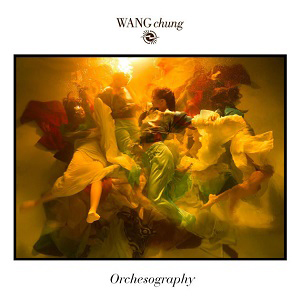 Hues: It was a challenge in some respects. We had a very experienced arranger working with us, but as you may or may not know, I trained in music. I did a music degree studying classical music and composition between 18 and 22, so I’ve got a working knowledge of orchestration. I was able to get quite involved with that, Nick as well. He’s got a very clear sense of how he wanted things translated, so we tried to, rather than just everything be strings, or quite a wash of emotion, or gushy romantic strings, we tried to pair it back a bit and use a bit more woodwinds. “Space Junk” has got the riffs played by a bass clarinet, so it’s trying to find those interesting textures that you find in 20th century orchestral music. We did a version of a song called “Overwhelming Feeling,” which is again on “Tazer Up!,” and the [original] version, it’s good, but when we did the orchestral version, we really rearranged some of the harmony and stuff. The orchestral version, I think, really brings the song out with a lot more detail then we were able to do with these sort of electronic instruments.
Hues: It was a challenge in some respects. We had a very experienced arranger working with us, but as you may or may not know, I trained in music. I did a music degree studying classical music and composition between 18 and 22, so I’ve got a working knowledge of orchestration. I was able to get quite involved with that, Nick as well. He’s got a very clear sense of how he wanted things translated, so we tried to, rather than just everything be strings, or quite a wash of emotion, or gushy romantic strings, we tried to pair it back a bit and use a bit more woodwinds. “Space Junk” has got the riffs played by a bass clarinet, so it’s trying to find those interesting textures that you find in 20th century orchestral music. We did a version of a song called “Overwhelming Feeling,” which is again on “Tazer Up!,” and the [original] version, it’s good, but when we did the orchestral version, we really rearranged some of the harmony and stuff. The orchestral version, I think, really brings the song out with a lot more detail then we were able to do with these sort of electronic instruments.
This year marks the 40th anniversary of “Points On A Curve.” In what ways did that project propel Wang Chung to international stardom?
Hues: Well, I guess principally the hit songs and their accompanying videos were in heavy rotation on MTV. “Dance Hall Days” in particular, but [also] “Don’t Let Go,” and “Don’t Be My Enemy.” There were proper hits on it, but I think quite often I find with pop albums, for want of a better word for them, [there’s] the initial surface impact and the tracks that you respond to immediately, but then there are tracks that take a little more time and you sort of warm to. A track like “Talk It Out,” for example, is heavily influenced by The Beatles in a way. That’s got this long fade with white noise coming up through it, which is rather like The Beatles’ “Carry That Weight.” We recorded “Points On A Curve” in Abbey Road Studio Two where the Beatles recorded all their albums. I’m not saying “Points On A Curve” was an homage to The Beatles, but both Nick and I, and [producers] Chris Hughes and Ross Cullum, we were all mad Beatles heads and spent a lot of times talking about them.
In those days, there was no “Anthology” and all the alternative versions, and demos. None of that was available, but Chris had some of it and we listened to it, and we were talking to engineers that had worked there when The Beatles were there, so I think “Points On A Curve” carries that long history. Some of the tracks were layered, but people get into when they listen to an album three or four times. It’s hard to believe it’s 40 years but it is. Some people are just completely obsessed with that record and see it as a perfectly balanced thing. I mean myself, being the artist, all you hear are the mistakes (laughs), but I get that it’s stood the test of time in a quiet, cool way.
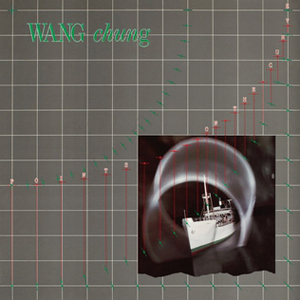 What did you take away from supporting some huge tours surrounding that album?
What did you take away from supporting some huge tours surrounding that album?
Hues: We toured principally with The Cars on their “Heartbeat City” Tour. We opened for them and it was a kind of baptism by fire (laughs) in many ways because I guess previous to that, we’d been playing London clubs. We did do Wembley Stadium with Elton John, which was particularly nerve-wracking (laughs) cause that was the first massive gig we’d done in our hometown, as it were. I guess it was hard to quite take in the sheer enormity of what we were doing, although I do remember because with “Dance Hall Days” and “Let’s Go!” being proper hits, the places, these big, mega stadium places, sixty to eighty thousand people in them, they were pretty full when we went on as the opening act and people responded incredibly well to us.
I think we made a lot of fans there and we quite often run into people who say, “I saw you at Meadowlands with The Cars and you were so much better than The Cars,” which we weren’t, I don’t think. But at the time, The Cars had this policy of not talking to their audience, so they would play a song and then turn their backs on their audience while the synclavier was rebooted to play the next song and then they’d play the next song. They didn’t do any in-between songs talking. I guess that was sort of an artistic decision by [front man] Ric Ocasek, to be arty and enigmatic, but the [downside] of it with the crowd was they got very discouraged (laughs) because their enthusiasm wasn’t being reflected back so much. The Cars were brilliant live, in terms of re-creating the records. I think they slightly shot themselves in the foot with this trying to be super cool thing, whereas we were very enthusiastic kids just leaving London, slightly amazed at where we were and only too happy to get a bit of applause. It worked very well for us, that whole experience of touring with a big road crew, and trucks full of gear, and seeing all these different cities across America because we’d not been to America at all before we started working with Geffen [Records] in Los Angeles, so it was an incredible experience.
What was it like going straight into the soundtrack of “To Live And Die In L.A.”?
Hues: We toured “Points On the Curve.” We then went back in the studio with Chris Hughes to do a follow-up album, but we didn’t really have the songs and the songs that we did have were maybe a bit too obscure at the time. One of the tracks that we worked on is going to be on “Clear Light Dark Matter,” a song called “Joy.” We hit a bit of a brick wall with it. Exactly at that time, [director] William Friedkin personally got in touch with us. A phone call to me began with just saying that he loved “Points On A Curve,” that he was working on this movie and he wasn’t happy with the soundtrack that he was getting. Would we be willing to do it and could we just create a load of music that week?
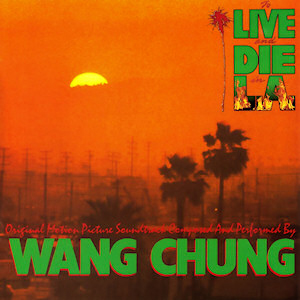 (Laughs) So I said, “yes” not really knowing what I was getting myself into, but that project came at a fantastic time where Nick and I were both kind of struggling with the top forty format of pop songs and basically we were asked. William Friedkin said, “I don’t want a song called ‘To Live And Die In L.A.’ I just want instrumental music,” so that’s what we gave him until I actually saw a rough cut of the movie with the instrumental stuff in it. Then I wrote the song against his instructions, which he loved (laughed) and put that in the movie, so that all worked out pretty well in the end.
(Laughs) So I said, “yes” not really knowing what I was getting myself into, but that project came at a fantastic time where Nick and I were both kind of struggling with the top forty format of pop songs and basically we were asked. William Friedkin said, “I don’t want a song called ‘To Live And Die In L.A.’ I just want instrumental music,” so that’s what we gave him until I actually saw a rough cut of the movie with the instrumental stuff in it. Then I wrote the song against his instructions, which he loved (laughed) and put that in the movie, so that all worked out pretty well in the end.
The group’s next huge hit was “Everybody Have Fun Tonight.” Why do you think that endured to such a significant extent?
Hues: I wish I knew (laughs) because I’d write more of them, but it’s hard to say. I guess the hook, “everybody had fun tonight/everybody Wang Chung tonight,” at the time, was considered quite tacky, really, because bands didn’t reference their own name, but I guess it gave context to the band. You’d be amazed at the number of people [who reacted to it]. I met a guy who works in the space force, in the military, and he was talking about how there were guys at NASA who were massive Wang Chung fans. It’s interesting. I think there’s something in the music that speaks to an American sensibility because particularly in America, it is iconic, not so much in the U.K. And I guess it’s just the way “everybody Wang Chung tonight” [is repeated]. To “Wang Chung,” what the hell does that mean? (Laughs) America, maybe, have somehow created some sort of open [interpretation] with that, whereas the Brits are a bit more suspicious (laughs).
What are your reflections on opening for Tina Turner at the time of the “Mosaic” album?
Hues: I can never remember which tour of hers it was, but it’s when she had “I Can’t Stand The Rain” and that kind of stuff, her iconic songs. Again, massive crowds that we were playing to, very attentive, lots of people there for our set. It was not that feeling where people come for the main act and stay in the bar when the opening act is on. People were there to see us as well and we made a lot of friends on that tour. Her backing band was mainly English guys, actually, and we got on really well with them. We had like a fair crack of the whip in terms of soundchecks and stage room, cause sometimes when you’re an opening act, the main act can choose how they treat you, if you know what I mean, but we were always treated really well. It was a very positive experience.
Speaking of legendary artists, what comes to mind when you think of collaborating with Tony Banks for Strictly Inc. during Wang Chung’s hiatus in the ‘90s?
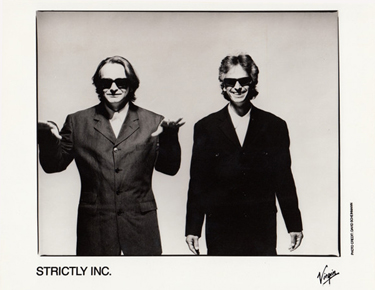 Hues: That was an incredible experience cause as I kid, I grew up obsessed with prog rock, Genesis in particular, with “Watcher Of The Skies,” that album “Foxtrot,” “Selling England By The Pound.” After Wang Chung split, I did a sort of solo project and Nick Davis was the engineer on that project. At the time, he was working on Genesis remasters, their back catalogue, for CD reissues. Tony got to the point where he wanted to make a solo record and Nick said, “Well, why don’t you work with Jack because I think you’ll like his vocals.” So I met with Tony. We got on really well cause we share this big interest in classical music and in a particular approach to music that’s quite pinpoint (laughs) I think, so I was able to deliver the kind of vocal performances that Tony wanted and ended up writing some lyrics for him because, basically, he’s into the music essentially. We became firm friends. I see him to this day. Before Christmas, we went to a classical concert in London together and I was at the last Genesis show at the O2 [Arena] a couple of years ago. That was a pretty amazing experience too.
Hues: That was an incredible experience cause as I kid, I grew up obsessed with prog rock, Genesis in particular, with “Watcher Of The Skies,” that album “Foxtrot,” “Selling England By The Pound.” After Wang Chung split, I did a sort of solo project and Nick Davis was the engineer on that project. At the time, he was working on Genesis remasters, their back catalogue, for CD reissues. Tony got to the point where he wanted to make a solo record and Nick said, “Well, why don’t you work with Jack because I think you’ll like his vocals.” So I met with Tony. We got on really well cause we share this big interest in classical music and in a particular approach to music that’s quite pinpoint (laughs) I think, so I was able to deliver the kind of vocal performances that Tony wanted and ended up writing some lyrics for him because, basically, he’s into the music essentially. We became firm friends. I see him to this day. Before Christmas, we went to a classical concert in London together and I was at the last Genesis show at the O2 [Arena] a couple of years ago. That was a pretty amazing experience too.
Would you ever reignite that partnership?
Hues: Yeah, I think Genesis hasn’t done anything for a couple of years. He said to me that they weren’t planning on doing anything else and that he was basically going to be doing a lot more gardening (laughs), which is what he likes to do. But yeah, if he was up for doing something else, I’d be very happy doing it. I’d love to work with him.
In the meantime, he re-released and remastered the “Strictly Inc.” album as part of the “Banks Vault” box set. Do you have any recollections from the last time you heard it?
Hues: It’s very dense. I think that of all the solo records that Tony did, it’s probably the closest to that sort of early ‘70s stuff that I really loved. A lot of big Genesis fans like “An Island In The Darkness,” which is the 20-minute epic track that he did on that album. I always remember sitting with him, and he’d be doing some mellotron type of stuff, and I’d say, “Why don’t you get the real thing out of the cellar?” They had a big barn with all of the gear that Genesis had used over the years and a couple of the roadies were saying, “You know, we can set it all up in the studio if you want,” cause Tony hasn’t used it for years. “Yeah, let’s do that” and Tony was like, “no! (laughs). I don’t want to look at that bloody stuff. It was such a nightmare at the time. Now I’ve got this nice Yamaha keyboard that sounds to me just the same.” And I was like, “Well, it’s not the same. It doesn’t sound broken and cracked.” And he said, “exactly. It sounds like I want it to sound!” It was playful, but I did try to encourage him to get the old gear out again. I ended up with some funny experiences there.
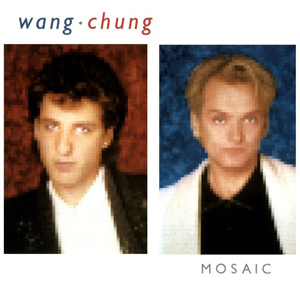 Why did Wang Chung take such a lengthy break and what brought you back together?
Why did Wang Chung take such a lengthy break and what brought you back together?
Hues: I think the experience in the ‘80s was pretty intense, and by the end of it, Nick and I found it very hard to agree on anything (laughs), especially artistically. We remained friends, even through the break-up part, and then Nick started working as an A&R [artists and repertoire] guy for Sony and for Warner Brothers, I think, and he used to phone me up. “I’ve got this band. I think you’d like them. Why don’t you come have a listen and maybe do a little work with them?” So I produced a few bands for Nick while he was an A&R guy and we’re brothers. We have a very close bond because of all that we’ve been through, all the different levels of success and failure (laughs) we’ve endured together. But I guess it was business stuff that really brought us together in the mid-2000s and certain people just saying, “we could book you a tour” or opportunities just sort of arose.
I think the success of “Space Junk” in “The Walking Dead” was another factor which made us think, “hmm, there’s still interest in the band.” I think as well “To Live And Die In L.A.,” at the time, was not really like a successful movie at the box office because it was so dark and has a complicated ending. For people who’ve never seen it, I won’t spoil it, but I think in retrospect, that project became a very iconic ‘80s album, quite cult status translating into much wider appeal now. I think all of those things made Nick and I slightly reassess the whole Wang Chung scenario. We started gigging again and really enjoyed it. I remember, particularly, a crowd in Milwaukee, just up the road from you in Chicago, blew my mind, the enthusiasm for what we were doing. It was Summerfest back in 2010. We just got a taste of playing again and “Tazer Up!” as well pulled us together with new material. That was particularly a rich time. We kept on with the gigs, and gradually I think this “Abducted By The 80’s” thing marks another step up for Wang Chung, in a sense, doing a tour where we’re headlining, [although] I see the bands as equals really. But it’s something that we’ve generated ourselves and there’s a lot of enthusiasm for the band.
Wang Chung, Men Without Hats, The Motels and Naked Eyes perform at the Des Plaines Theatre on Friday, June 7. For additional details, visit WangChung.com and DesPlainesTheatre.com.

